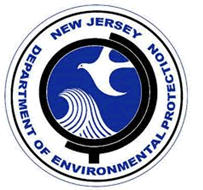DEP MOVES FORWARD WITH ARTIFICIAL REEF PLAN
PROPOSED RULE WILL STRIKE BALANCE BETWEEN RECREATIONAL AND COMMERCIAL FISHING INTERESTS
 (15/P12) TRENTON – The Department of Environmental Protection this week proposed new rules that will fully implement a compromise between recreational and commercial fishing interests over access to artificial reefs off the coast of New Jersey, Commissioner Bob Martin announced today. (15/P12) TRENTON – The Department of Environmental Protection this week proposed new rules that will fully implement a compromise between recreational and commercial fishing interests over access to artificial reefs off the coast of New Jersey, Commissioner Bob Martin announced today.
The plan will allow commercial interests to have continued access to portions of two reefs in state waters and calls for the construction of a new reef for recreational fishing, also in state waters. The compromise, reached in 2013 with commercial and recreational fishing groups, is now being proposed as a formal rule change and amendments to Fish and Wildlife regulations. The proposal appears in the Feb. 2 New Jersey Register.
“Recreational and commercial fishing are vital to New Jersey’s economy, providing more than $2.5 billion in economic benefits each year,” Commissioner Martin said. “This compromise will address the needs of commercial fishermen and recreational anglers, and will result in restoration of federal funding that is vital to the development of artificial reefs that provide tremendous commercial and recreational benefits.”
The DEP’s Division of Fish and Wildlife holds permits for 15 artificial reef sites – 13 in federal waters and two in state waters. The reefs, encompassing a total of 25 square miles of ocean floor, are constructed from a variety of materials, such as rocks, concrete and steel, even old ships and barges. These materials provide surfaces for a wide diversity of marine organisms to grow, ultimately providing food and habitat for many species of fish and shellfish.
Under the rule proposal in the New Jersey Register, commercial and recreational fishermen utilizing lobster, fish and conch pots will be permitted to continue using portions of two existing reefs in state waters off Sandy Hook and Manasquan. State waters extend from the shoreline to three miles offshore. Recreational hook-and-line fishermen will continue to have access to all portions of these reefs.
Commercial and recreational fishermen will be allowed the use of lobster, fish and conch pots on the Sandy Hook and Axel Carlson Reefs in specific “full access zones” within each reef. Commercial and recreational anglers and sport/scuba divers will continue to have full access to all parts of the reefs including the full access zones.
In addition, commercial and recreational lobster potters setting and tending gear within the full access zones must do so only between the hours of sunrise and sunset, and they must call the Marine Law Enforcement Headquarters two hours prior to doing so. Individual pots set in these zones must be marked with a buoy and a string of pots must have a buoy attached to both ends.
A new reef, encompassing about a square mile of ocean floor, will be constructed in state waters in an area north of Barnegat Inlet to be used for recreational fishing. The Division of Fish and Wildlife is working with the DEP Division of Land Use Regulation and U.S. Army Corps of Engineers in securing the permit for this project.
This plan is expected to resolve federal concerns that commercial fishing is intruding on and hampering recreational fishing on artificial reefs in state waters, which are funded by excise taxes on recreational fishing gear and motor boat fuel. Costs to obtain, clean and deploy suitable material also is supported by private donations.
As the plan is implemented, the DEP will petition the U.S. Fish and Wildlife Service to restore nearly $250,000 in annual funding for artificial reef research, improvements and maintenance that has been withheld as a result of this issue.
Funding restored by the U.S. Fish and Wildlife Service would be used to pay for a significant portion of this project. Donations from both the commercial and recreational fishing communities will also help pay for construction. The DEP, in consultation with stakeholders and the Army Corps of Engineers, will finalize a site for the new reef.
The DEP will also work with the federal Mid-Atlantic Fishery Management Council for Special Management Zone designation which will allow the DEP to prohibit commercial gear on all 13 existing artificial reefs in federal waters. Federal waters begin three miles offshore.
For more information on New Jersey’s Artificial Reef Program, visit: http://www.nj.gov/dep/fgw/artreef.htm
A copy of the proposal is available at: http://www.nj.gov/dep/rules/notices.html
Written comments may be submitted electronically by April 2, 2015 at http://www.nj.gov/dep/rules/comments
Written comments may be sent to:
Gary J. Brower, Esq.
ATTN: DEP Docket No. 14-14-12
NJ Department of Environmental Protection
Office of Legal Affairs
Mail Code 401-04L; PO Box 402
401 East State Street, 7th Floor
Trenton, NJ 08625
|